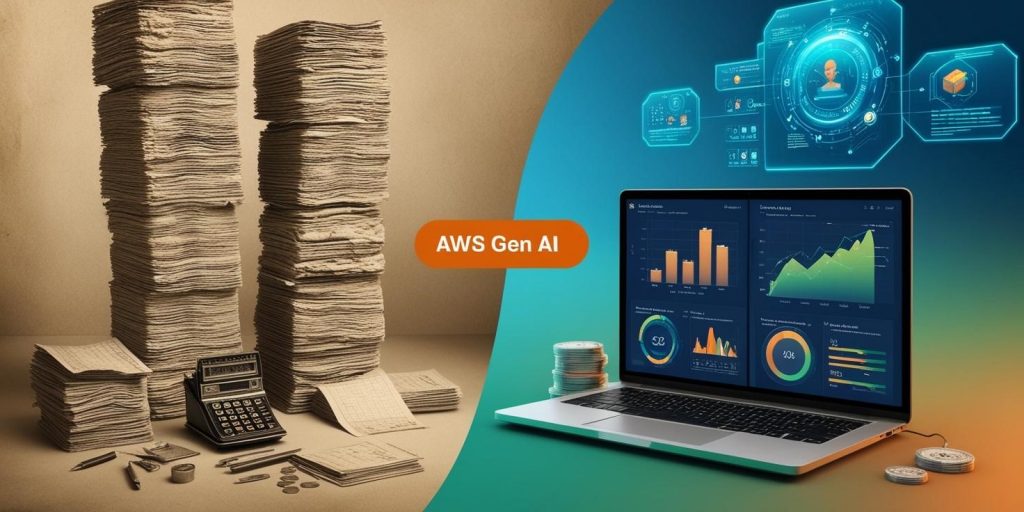Blockchain technology has revolutionized industries by offering decentralized, transparent, and secure ways to manage data and transactions. Whether you’re building a Smart Contract, creating Decentralized Applications (DApps), or looking for Blockchain Consulting services, choosing the right approach for blockchain development is crucial. In this blog, we’ll explore different strategies for blockchain development, including rehosting, refactoring, and rearchitecting, to help you determine the best path for your organization.
Why Blockchain Development Matters
Blockchain enables peer-to-peer transactions, reducing the need for intermediaries and offering a secure, tamper-proof ledger of all activities. Its decentralized nature ensures that no single point of failure can compromise the system. These features make blockchain a viable solution for applications requiring high security, transparency, and immutability, such as financial services, supply chain management, and healthcare.
As businesses increasingly adopt blockchain solutions, understanding how to develop and integrate blockchain technology is essential. The choice of strategy—whether rehosting, refactoring, or rearchitecting—will determine the scalability, security, and overall efficiency of your blockchain infrastructure.
1. Rehosting: Quick Transition to the Cloud
Rehosting, often known as “lift and shift,” involves migrating your existing blockchain infrastructure to a new cloud environment with minimal changes. This approach is fast and low-risk, as it does not require significant modifications to the system’s underlying architecture.
For companies looking to take advantage of cloud technologies while preserving their existing blockchain setup, rehosting offers a streamlined option. For instance, moving an on-premises blockchain ledger to a public cloud environment enables enhanced scalability and disaster recovery capabilities.
- Key Benefits: Quick and cost-effective migration, minimal disruption, improved scalability.
- When to Use: Rehosting is ideal for organizations seeking immediate benefits from cloud adoption without modifying their blockchain architecture.
2. Refactoring: Optimizing for Blockchain Performance
Refactoring involves modifying the codebase of your blockchain system to improve its performance without changing its external behavior. This approach is valuable when your blockchain infrastructure requires optimization to meet modern standards or handle new workloads.
For example, organizations working with legacy blockchain applications may benefit from refactoring by improving system efficiency, enhancing transaction throughput, and aligning the codebase with modern cloud-native capabilities. It’s also useful for optimizing Smart Contract Development and enhancing the performance of DApps.
- Key Benefits: Improved system performance, optimized resource usage, and better cloud integration.
- When to Use: Refactoring is ideal when your blockchain infrastructure needs performance improvements or compatibility with modern cloud platforms.
3. Rearchitecting: Comprehensive Blockchain Overhaul
Rearchitecting is a complete redesign of the blockchain infrastructure to leverage the latest technology and architectures. This approach often involves rebuilding your system with a focus on cloud-native solutions, such as serverless computing or Decentralized Applications (DApps).
By rearchitecting your blockchain system, you can incorporate advanced security features, improve transaction speed, and fully integrate with modern cloud platforms. This strategy is best for organizations looking to develop new Smart Contracts, optimize business continuity, and ensure compliance requirements are met.
- Key Benefits: Greater flexibility, advanced security, full cloud-native integration.
- When to Use: Rearchitecting is the best choice when your blockchain infrastructure no longer meets business needs, or when building new applications from the ground up.
Key Considerations for Blockchain Development
Choosing the right blockchain development strategy requires a deep understanding of your business objectives, technical requirements, and future scalability needs. Consider the following factors:
- Performance Requirements: Blockchain performance can vary based on the number of transactions per second (TPS) and the complexity of smart contracts. Ensure your approach can meet these needs.
- Compliance and Security: Blockchain systems often need to comply with regulations such as GDPR or HIPAA, especially in industries like healthcare or finance. Choose a development strategy that prioritizes security and compliance.
- Cost Efficiency: Migrating and developing blockchain infrastructure can be costly. Select a strategy that aligns with your budget while delivering the necessary scalability and performance.
- Integration with Cloud Services: Your blockchain infrastructure must integrate seamlessly with modern cloud solutions to ensure business continuity and disaster recovery.
- Future Proofing: Ensure that your blockchain system is built to handle future expansions, whether through Smart Contract Development or Decentralized Applications (DApps).
Explore Our Software Development Services at a Glance
Blockchain Technologies to Consider
When developing or integrating blockchain solutions, several technologies stand out:
- Smart Contracts: These self-executing contracts automatically enforce the terms of an agreement. They are crucial in decentralized environments, such as supply chain management or financial transactions, where trust and transparency are key.
- Decentralized Applications (DApps): Unlike traditional applications, DApps run on decentralized networks, ensuring no single entity controls the application. They are popular in sectors like gaming, finance, and social networks.
- Blockchain Consulting: As blockchain technology evolves, businesses can benefit from Blockchain Consulting services that provide strategic advice on implementing blockchain solutions that align with organizational goals.
FAQs
- What is the role of smart contracts in blockchain development?
- Smart contracts are self-executing contracts that automatically enforce terms and conditions, making them essential for decentralized platforms and secure transactions.
- How does blockchain ensure data security?
- Blockchain uses cryptographic techniques to secure data, ensuring that once a transaction is recorded, it cannot be altered or tampered with.
- When should a company choose rearchitecting over refactoring for blockchain development?
- Rearchitecting is ideal when an organization’s blockchain infrastructure requires a complete overhaul or when building new decentralized applications from scratch.
- What are the benefits of decentralized applications (DApps)?
- DApps offer transparency, security, and resistance to censorship, as they are not controlled by a single authority but run on decentralized networks.
- How can blockchain consulting help organizations?
- Blockchain consulting provides expert insights into developing, integrating, and optimizing blockchain solutions, ensuring the technology aligns with the organization’s goals.
Conclusion
Blockchain development is a complex yet critical process for businesses looking to harness the power of decentralized systems. By carefully considering the options—whether rehosting, refactoring, or rearchitecting—you can choose the approach that best meets your organization’s needs.
Whether you’re building Smart Contracts, optimizing Decentralized Applications (DApps), or seeking Blockchain Consulting services, understanding the nuances of blockchain development will help you maximize your investment and achieve long-term success.
Talk to Our Expert today to discuss the right blockchain development strategy for your business. We provide tailored consulting to ensure seamless integration, compliance, and future-proofing of your blockchain infrastructure.



